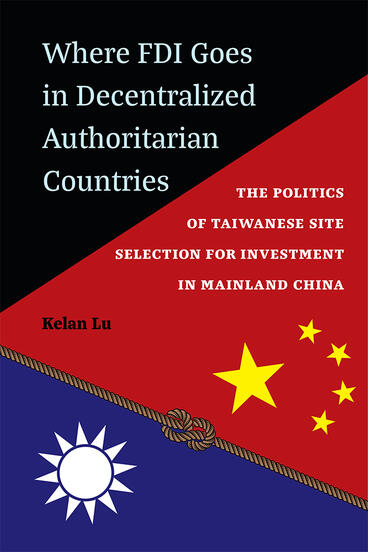Where FDI Goes in Decentralized Authoritarian Countries
The Politics of Taiwanese Site Selection for Investment in Mainland China
Explores the conditional effect of fiscal decentralization on FDI inflows at county level in China and explores whether FDI sourced from adversarial states is more dependent upon local government fiscal autonomy than those sourced from the non-adversarial states
Description
Among all the decentralized authoritarian countries, China is distinctive not only because of its emergence as one of the largest foreign direct investment (FDI) recipient countries with one of the highest levels of fiscal decentralization, but also because of the combination of its fiscal decentralization and the cadre promotion system as incentive institutions for attracting FDI inflows. China is an important case to empirically investigate the impact of fiscal autonomy on adversarial investment because it has become the largest investment destination of its long-term adversary, Taiwan, with Taiwanese FDI being among the largest FDI in mainland China. Given the special role played by local Chinese governments in attracting and hosting Taiwanese FDI, it is important to study the differences between where Taiwanese FDI and other FDI goes.
Given the uniqueness of the China case and that of Taiwanese investment in mainland China, this book explores the following questions. What determines where FDI goes in authoritarian countries like China? Fiscal decentralization has been argued to be a driving force of skyrocketing FDI inflows in China due to its impact on local governments’ incentives. However, is the impact of fiscal autonomy on FDI monolithic with the dynamically changing levels of FDI inflows at the lower administrative levels in China, especially with its special cadre management system? Does the impact of fiscal decentralization on FDI strengthen or weaken or stay the same when attracting FDI inflows from adversarial states? And what are the implications of such adversarial investment—especially as it diffuses from coastal cities to the interior regions, or from key cities to peripheral regions—of decentralized authoritarian countries targeted by this investment?
Kelan Lu is Associate Professor in the Department of Political Science at the University of South Carolina.
Reviews
“Lu provides outstanding empirical insights on how adversarial FDI favors fiscally autonomous county governments, showing the feedback effect of FDI on local government incentives and autonomy. Her study does what other exceptional political economy works do: it is smartly written, novel, and of immediate interest especially given China’s global rise.”
- Glen Biglaiser
—Glen Biglaiser, University of North Texas
“China’s rise from a poor, backward country to an economic powerhouse has been spectacular. What surprises many observers, however, is that one of the largest investors in mainland China is arch-rival Taiwan. This ambitious study employs quantitative analysis and superb historical background to help us understand this phenomenon. The book is a great resource for anyone interested in Chinese politics, international relations, or international political economy.”
- Dennis V. Hickey
—Dennis V. Hickey, Distinguished Professor Emeritus, Missouri State University
"Few other books deliver such deep knowledge and understanding about the history and evolution of Chinese FDI policies as this book does. This book responds to the critical questions and provides invaluable information about the politics of FDI in China."
- The Developing Economies
--The Developing Economies

